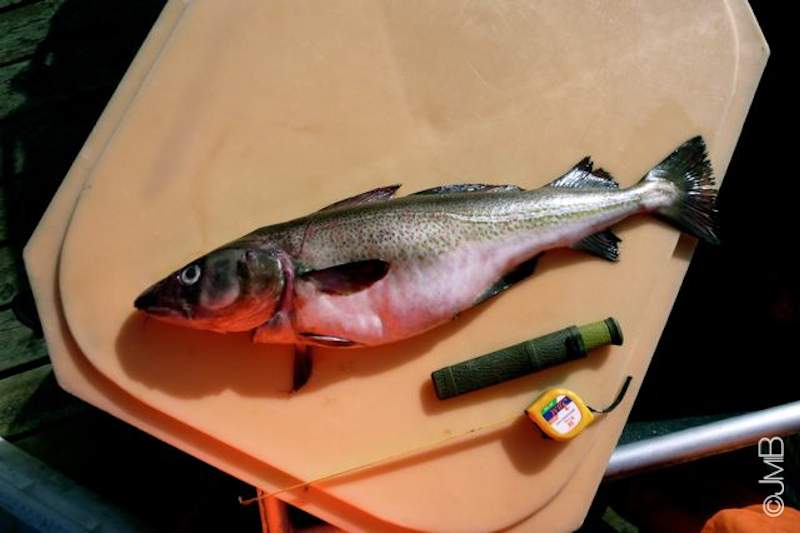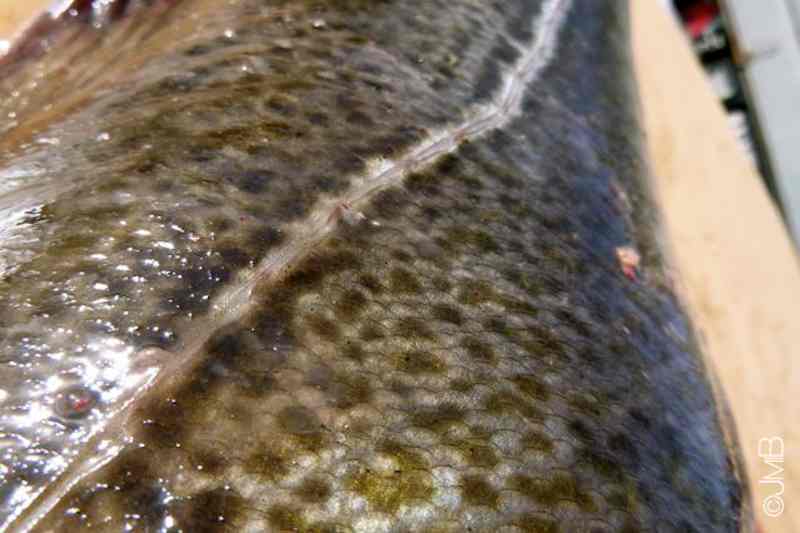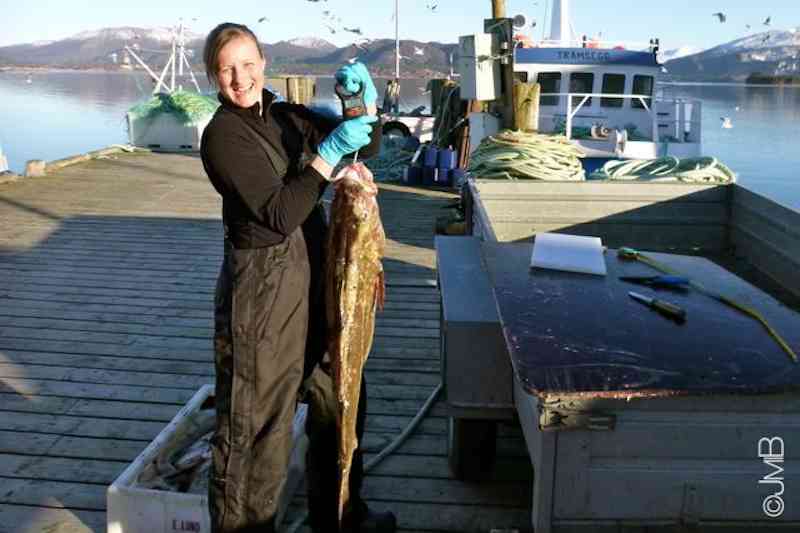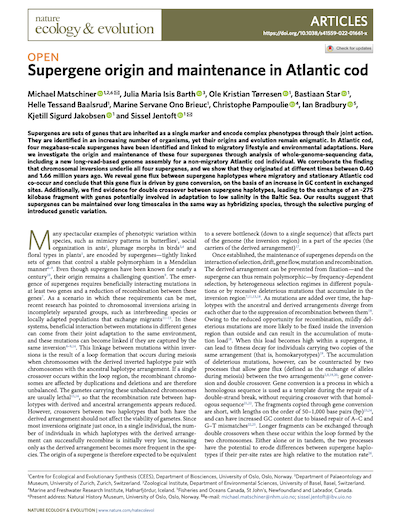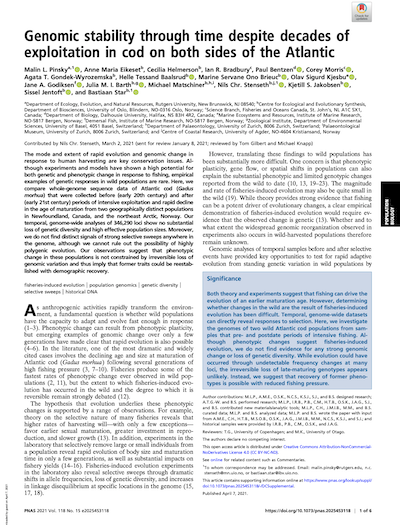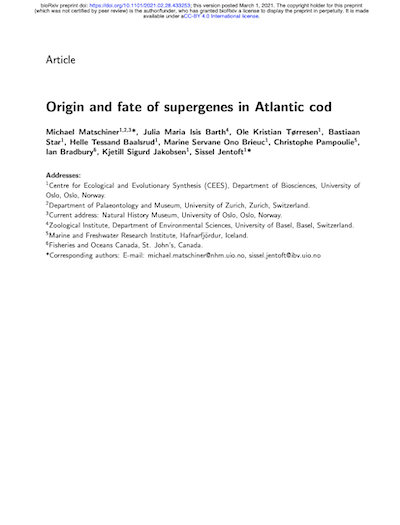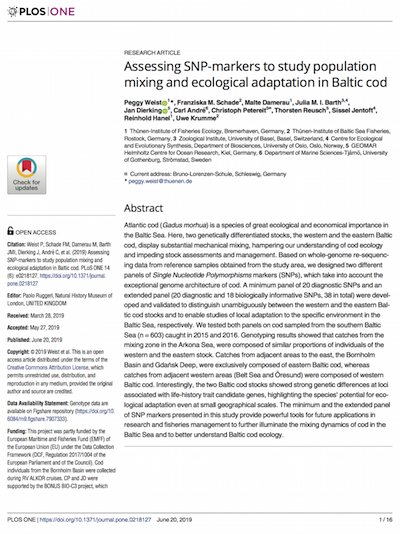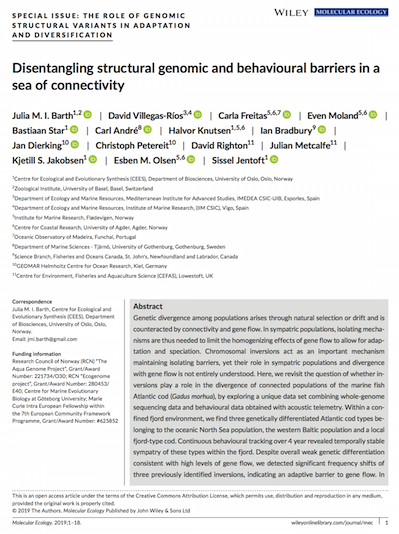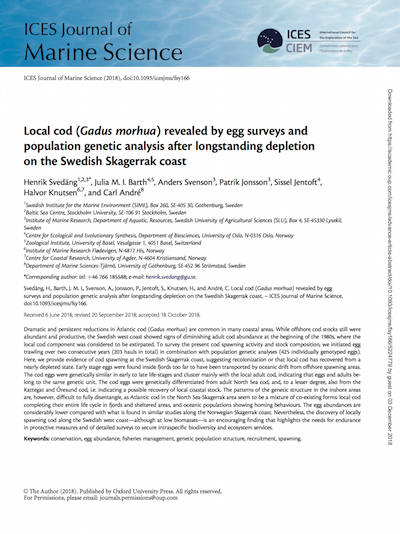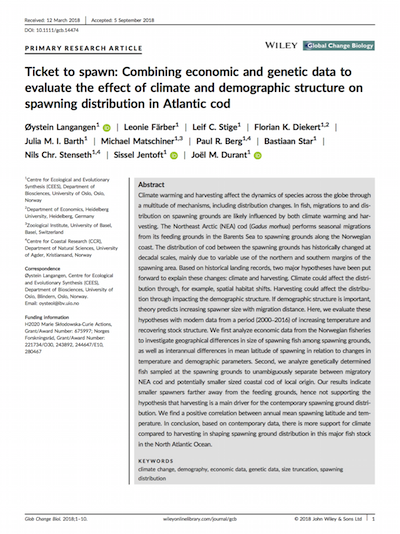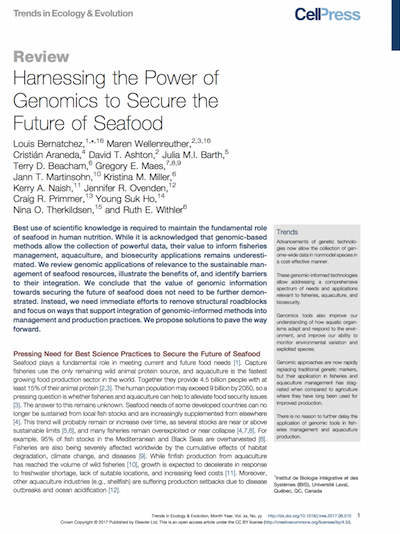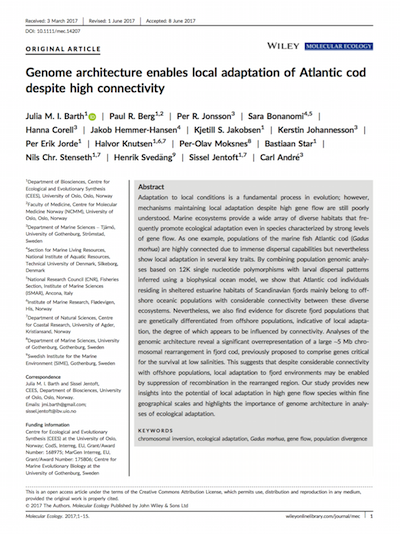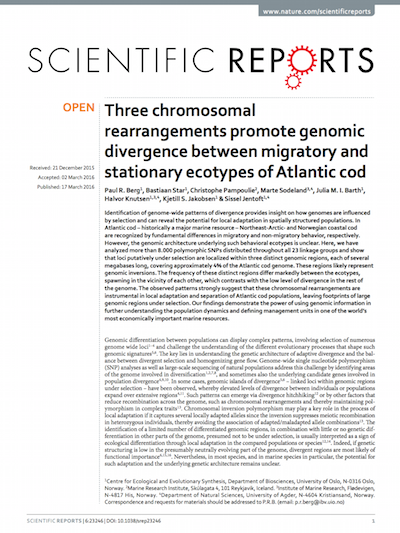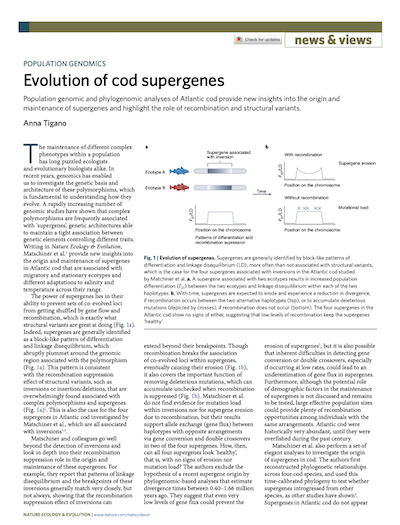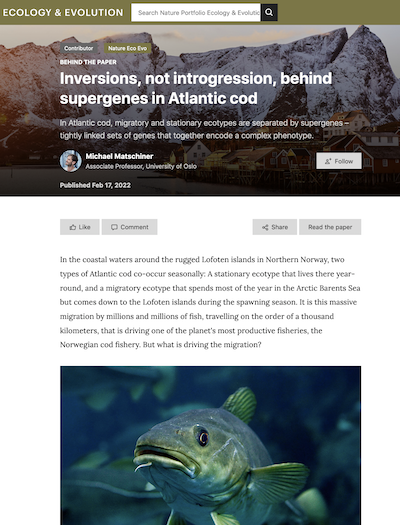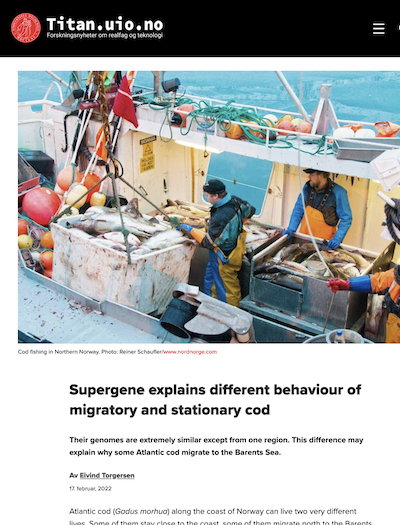Atlantic cod (Gadus morhua)
Postdoctoral projects at the Center of Ecological and Evolutionary Synthesis (CEES), University of Oslo, Norway.
CodS
Structured populations represent confined interbreeding species units, which have long been assumed to be non-existent in open marine environments due to the lack of
geographical barriers. However, this is increasingly disproved and population structure is being documented at fine scales. Populations often show high levels of genetic
differentiation important for adaptation to local environments, and lack of knowledge about this variation can lead to its irretrievable loss.
Since the 1970’s, Atlantic cod (Gadus morhua) stocks have been declining in the North Sea's Kattegat/Skagerrak (KASK) area and adjacent fjords leading to a near
extinction of cod in the Swedish fjords. Whether the remaining cod in this area represents a large panmictic population where recruitment from offshore areas can substitute
for local losses, of whether coastal areas and fjords are home to declining locally adapted populations depite the high potential for gene-flow is still an open question.
Within the internationally collaborative project CodS
I am employing a large-scale genomic approach, where 500 cod individuals were genotyped at 10.000 single-nucleotide polymorphism
(SNPs) markers to answer this question, and to propose a management strategy for potentially locally adapted Swedish fjord populations of cod.
Aquagenome
The Aqua Genome project is a large collaborative effort to create a sustainable basis for aquaculture and fisheries management of Atlantic salmon and Atlantic cod by studying the genomic background of thousands of fish. Our group is investigating different aspects about Atlantic cod from it's entire distribution utilizing the latest high-throughput sequencing technologies, as well as breeding material and individually tagged fish to recover behavioural data. Find more about the project here: aquagenome.uio.no.
